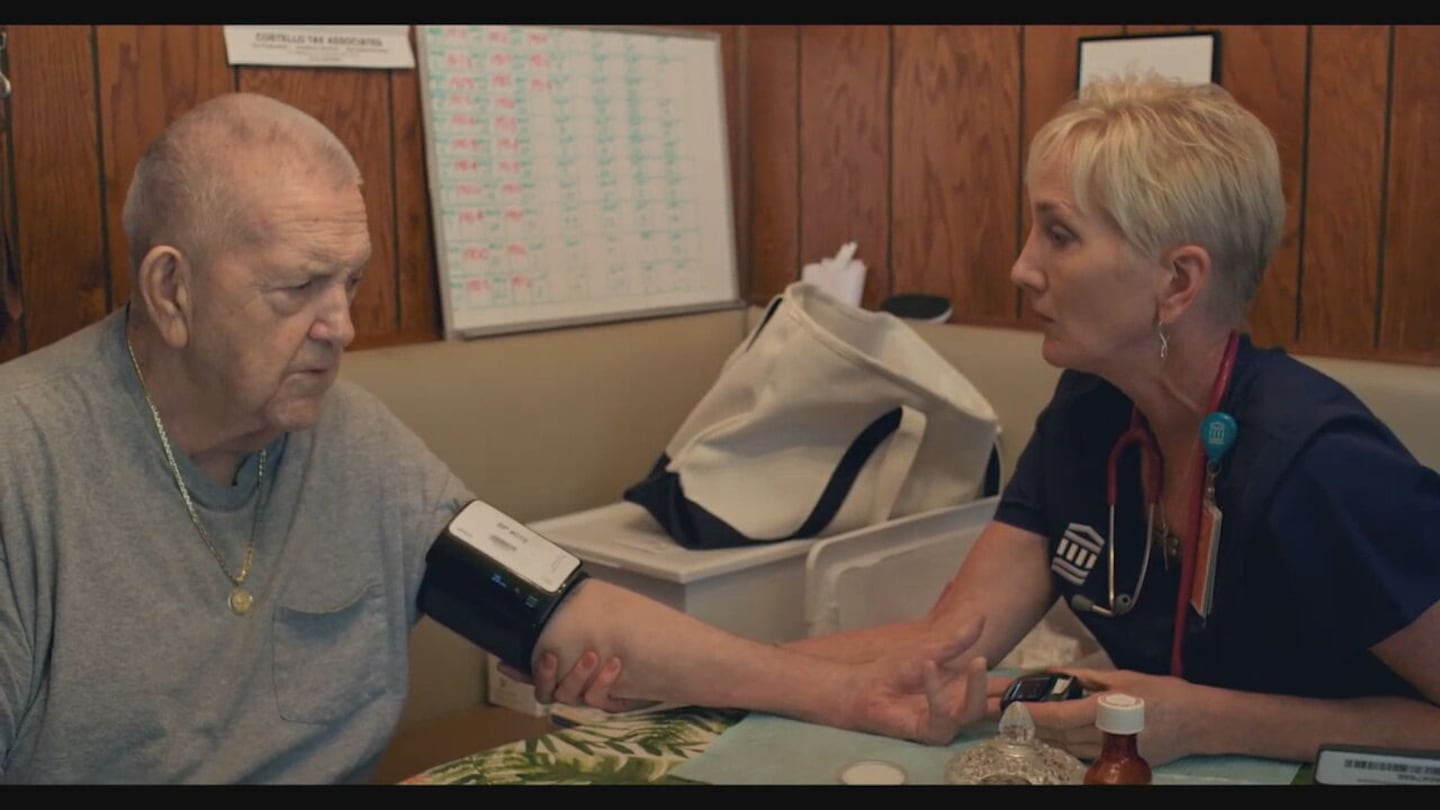BOSTON — Hospitals in Massachusetts and around the country are constantly facing a shortage of beds. To help alleviate the capacity crisis, a program is offering hospital-level care in the comfort of patients’ homes.
Following a fall in his Westwood garage, 85-year-old Herb Irvine went to urgent care to get his knee stitched up, only to wake up the next day in more pain.
“That’s infected,” Herb Irvine said the doctor at the urgent care told him. “You probably have to stay in the hospital.”
Herb and his wife Julia went to Newton-Wellesley Hospital and initially were told he would have to stay there for four to five days—until they learned about an alternative option --home hospital.
“All of the world-class clinical care will come to you in a comfort and privacy of your home setting, again, with the medications and the medical supplies that you would require,” said Heather O’Sullivan, the President and Chief Operating Officer for Mass General Brigham Healthcare at Home.
O’Sullivan says home hospital allows patients to receive hospital-level care for conditions such as heart failure, pneumonia, and in herb’s case, infections-- from the comfort of their home.
The nation-wide program is offered locally in 71 communities across the state through five Mass General Brigham hospitals and it’s a mutual decision between the patient and care team.
“We came home and a whole army followed us, said Julia Irvine, Herb’s wife. “We, it wasn’t five minutes in between us coming from the hospital and having the services rendered.”
The team sets up the equipment and offers around the clock care—which impressed the Irvine’s.
“People like that, to come to your house and just be so nice and just, you just can tell how thorough they are with what they do and their work and stuff,” said Herb. “Wow, it’s really something.”
And there’s good reason—O’Sullivan says studies show home hospital patients experienced fewer complications and lower readmission rates.
“It can provide you with that more personalized experience and we also see tremendous outcomes, clinical outcomes, quality outcomes, better than at times you would receive in a brick and mortar hospital,” said O’Sullivan
The model also helps free up crucial bed space, as recent research shows annual hospitalizations are expected to rise from 36 million in 2025 to 40 million in 2035.
“There’s so many patients in the hospital,” said Julia. “And for them to be able to tend to everybody, the attention that he got would not happen.”
Since 2022, Mass General Brigham has treated 7,000 home hospital patients. However, a Mass General Brigham spokesperson says the CMS waiver program that was started during the pandemic, a critical initiative for Medicare beneficiaries to receive this type of care, is scheduled to expire on September 30th. Mass General Brigham says it’s committed to the future of home care and is advocating for a five-year extension of the waiver. The spokesperson says this creates the opportunity for hospitals to invest and innovate within the proven care model.
“If we lose the federal funding, it’s only going to make the hospital capacity crisis that much worse,” said O’Sullivan.
There is currently a bipartisan bill that would extend the waiver for another five years. Mass General Brigham’s is one of the largest home hospital programs in the country and it recently expanded its care to patients with cancer.
Download the FREE Boston 25 News app for breaking news alerts.
Follow Boston 25 News on Facebook and Twitter. | Watch Boston 25 News NOW
©2025 Cox Media Group






